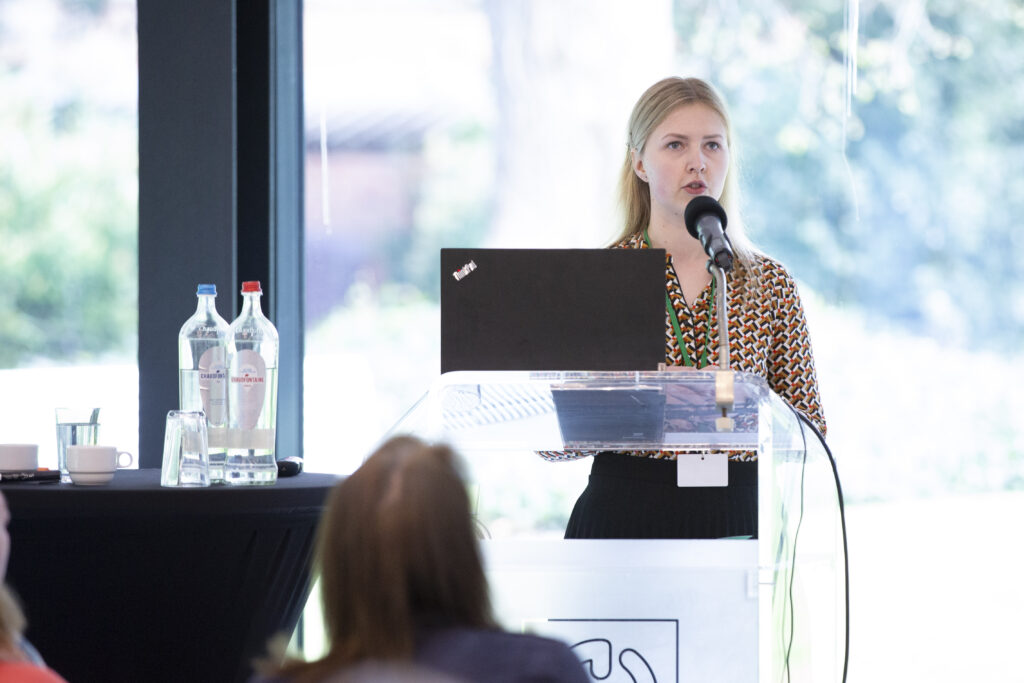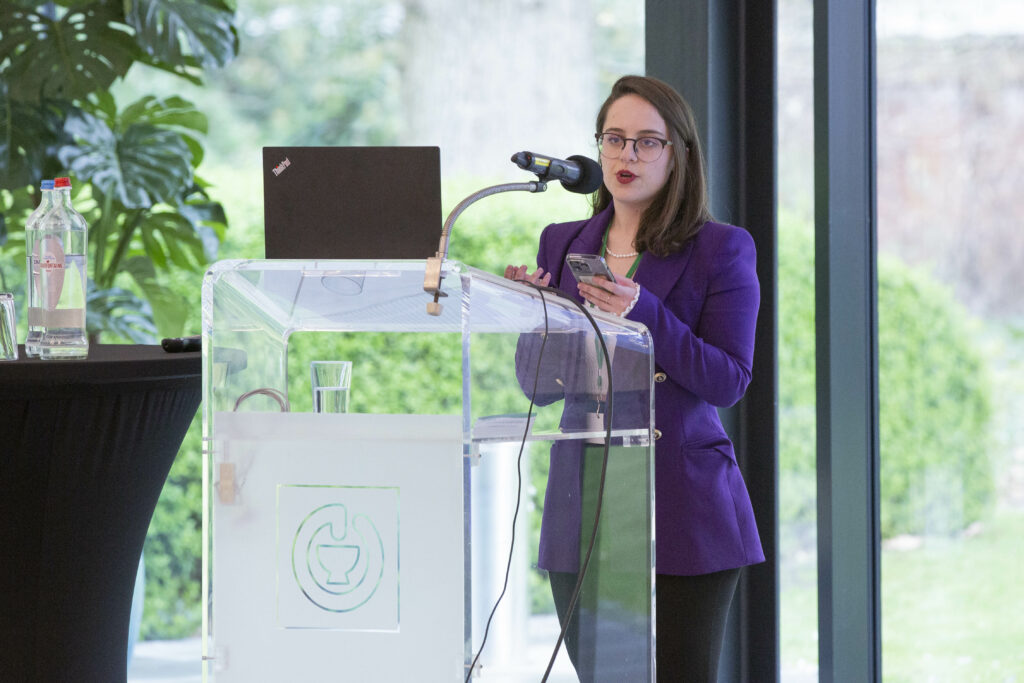During the ESCP Spring Workshop in Antwerp we had the opportunity to hear the results of the work of young colleagues from Latvia and Malta.
Anna Gavrilova

Anna has a pharmacist diploma and she is currently pursuing a PhD in clinical pharmacy. Her research focuses on the safety aspects of direct oral anticoagulants among patients with atrial fibrillation. She is primarily involved in academic work, and she teaches courses on “Pharmaceutical Pharmacology” and “Pharmacotherapy in Pharmacist’s Practice” along with her colleagues at Rīga Stradiņš University (Riga, Latvia). Collaborating with her esteemed colleagues in various disciplines, they aim to provide comprehensive education and contribute to the advancement of pharmaceutical knowledge. Their institution established the new Pharmaceutical Education and Research Centre, which significantly promotes their research efforts and enables us to conduct more extensive studies.
The goal of drug therapy is to be safe and effective. During the ESCP Spring Workshop, Anna shared her research findings on the significance of direct oral anticoagulants’ (DOAC) concentration measure assays for patients taking amiodarone simultaneously. It was discovered that, in atrial fibrillation patients receiving amiodarone before scheduled electrical cardioversion, higher-than expected concentrations of DOACs are found for rivaroxaban and edoxaban users. This event provided an excellent opportunity to discuss practical concerns regarding the optimization of medication usage, risk decreasing against bleeding, and providing high-quality care to this patient cohort. The experience has motivated her to further her research to discover objective control mechanisms of long-term DOAC therapy.
Anna´s department has substantial experience in studying adherence problems to antihypertensive therapy. Achieving optimal blood pressure control, the main goal of antihypertensive treatment requires patient cooperation in addition to effective medication. Available evidence suggests that up to 90% of patients with AH may miss treatment, and ~ 50% may discontinue therapy within one year of diagnosis. Their recent survey results indicate that every other patient is non-adherent in Latvia, which is a concerning finding. Prescription databases analytical study also supported these results. However, both of these methods have disadvantages, so they are not commonly utilized in daily clinical practice. Thus, there is a need for more independent methods to measure adherence, such as determining the concentration of an antihypertensive drug or metabolite over a prolonged period of therapy, minimizing the risk of subjectivity.
Anna concluded: “The clinical pharmacy offers numerous advantages in healthcare. By actively involving pharmacists in patient care, clinical pharmacy enhances medication safety and optimizes therapeutic outcomes. Pharmacists with expertise play a pivotal role in medication management, conducting medication reconciliation, identifying and resolving medication-related problems, and providing drug information to healthcare professionals and patients. Interdisciplinary teams promote effective communication and collaboration, resulting in improved patient care. Moreover, it contributes to research and education, expanding the knowledge base and ensuring evidence-based practice. Given our shared interest in patient safety, medication optimization, and adherence, I invite everyone to consider collaborating on future projects and initiatives to further advance clinical pharmacy practice and contribute to the betterment of patient care. Together, we can make a meaningful impact in this field.”
Raquel Formosa

Raquel is 22-year-old Maltese final year pharmacy student reading for a Master in Pharmacy (M.Pharm.) degree at the University of Malta.
During the Spring ESCP Workshop in Antwerp, Belgium, Raquel presented an oral communication reflecting findings from her dissertation, which focused on ‘Pharmacist-Led Personalisation of Antiplatelet Therapy and Outcomes After Percutaneous Coronary Intervention’. The research was conducted under the supervision of Dr Francesca Wirth, Senior Lecturer at the Department of Pharmacy of the University of Malta and Member of the Research Committee of ESCP. The research was undertaken in collaboration with the Department of Cardiology at Mater Dei Hospital, the main acute general hospital in Malta.
There is currently an ongoing dilemma regarding the choice and duration of dual antiplatelet therapy (DAPT) for patients undergoing percutaneous coronary intervention (PCI). The research aimed to assess bleeding risk, optimise antithrombotic therapy and evaluate outcomes in patients undergoing PCI. Two hundred patients undergoing PCI and candidates for DAPT were prospectively recruited for this cohort study. Bleeding risk was determined using the PRECISE-DAPT score, which was not routinely used in local practice. Low bleeding risk patients on oral anticoagulation therapy and all moderate-to-high bleeding risk patients were discussed with the cardiologists for therapy optimisation, taking into account also ischaemic risk. Cardiologists accepted the researcher as part of the team and considered the bleeding risk evaluation proposed by the researcher, where changes in treatment where made as necessary. Patients were followed up over a 1-year period post-PCI for morality, bleeding and ischaemic outcomes. Application of the PRECISE-DAPT score in this setting was innovative, and the research demonstrated that pharmacist-led evaluation of bleeding risk supported cardiologists in the personalisation of antithrombotic therapy post-PCI.
Disseminating research as an oral presentation in this year’s ESCP workshop was a valuable opportunity for Raquel, especially since it was her first time participating and disseminating research in an international forum. Raquel valued the insightful feedback received from the workshop attendees and it was an enriching experience which she will cherish. From a networking perspective, she made new connections with international peers in the field of pharmacy. It is definitely an experience that should not be missed, and young researchers are encouraged to become members of ESCP, submit research abstracts and attend activities organised by ESCP!
Join ESCP (become a member)
Join ESCP today and help to strengthen our clinical pharmacy community. We are a global society for all members of the pharmacy team in all settings.
Click here for membership
